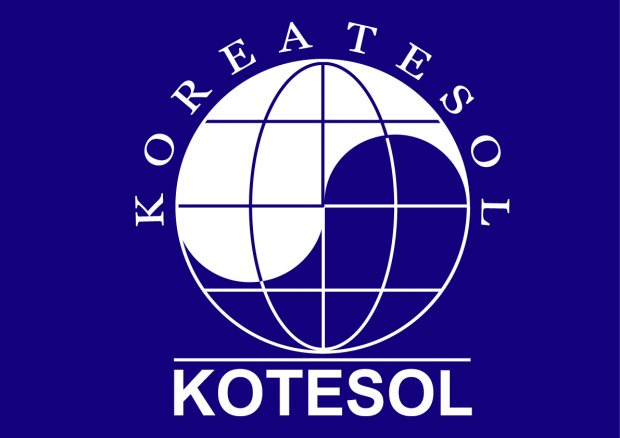
Gwangju-Jeonnam KOTESOL April Meeting
Time: Saturday, April 13, 2013, 1:30 p.m.
Place: Chosun University (Gwangju), Main Building (본관), Room 5210.
Schedule
1:30 pm: Sign-in and Meet-and-Greet (Admission is free. Membership is encouraged.)
2:00 pm: PRESENTATION 1
Time, Place, and Self: Cultural Factors in the Teaching and Learning of English in Korea
Dr. Steve Garrigues (Kyungbuk National University, Daegu)
2:45 pm: Refreshment Break
3:00 pm: PRESENTATION 2
Encouraging Longer Responses from Students in Teacher-Student Interaction Classroom
Ross Chambers (Gwangju National University of Education)
4:00 pm: Swap-Shop Session
Share your Teaching Ideas, Classroom Activities, and Language Games.
(Open to All Attendees. Handouts welcomed.)
4:30 pm: Announcements / Prizes for Best Swap-Shop Ideas / Closing
Venue Directions at: http://www.koreatesol.org/content/chapter-meeting-venue-getting-chosun-u...
==============================================================
Presentation Abstracts and Presenter Biographical Sketches
PRESENTATION 1
Time, Place and Self: Cultural Factors in the Teaching and Learning of English in Korea
Dr. Steve Garrigues
Kyungbuk National University, Daegu
We all know that culture is an integral part of the background of every language, and many teachers of English include some component of culture in their classes. We should understand, however, that culture is a lot broader and deeper than a mere collection of customs, habits, and traditions. It pervades our perceptions of place, person, and time in ways we seldom consciously realize. Consequently, the languages we speak (and think in) reflect these differences of perception and function to reinforce our distinctive worldviews. Our behavior and attitudes concerning personal space, for example, go far beyond being merely interesting cultural tidbits and curious customs. These things are related to the deepest level of culture: that of values.
Among the core North American (and European) values, most people would recognize the prominence of individualism, personal independence, emphasis on individual rights and personal privacy, and egalitarianism. In contrast to these, we can observe that Korean values place more emphasis on group belonging and "we-ness" (uri-nara, uri-mal), dependence, and the importance of hierarchical relationships. Likewise, even our concepts of time may differ significantly. To take one example, the issue of "Korean age" is something that all foreigners notice after being in Korea for a while. There are conventional explanations which generally satisfy people's curiosity, but those explanations commonly miss the point, and they overlook the significant linguistic dimensions involved.
All of these things can be seen manifested in the contrasting usage of language by Korean and native English speakers. This presentation will examine these and other issues in detail to illustrate contrasting conceptions of time, person, and place, and to show how the English and Korean languages encode our perceptions and assumptions differently. The twofold aim of this presentation is to elucidate some of the linguistic and cultural puzzles found in Korea and to show how common "errors" made by English learners actually reflect the logic of the Korean language and cultural perceptions.
The Presenter
Steve Garrigues is a Professor in the English Department at Kyungbuk National University in Daegu, where he has been teaching since 1986. Steve was born in the United States, but prefers to think of myself as a world citizen, having spent most of his life outside of the US, including 4 years in India, 6 years in Tonga, 10 years in Japan and 30 years in Korea. His MA and PhD are both in cultural anthropology. His primary research interests are in intercultural communication and cross-cultural semantics.
===================
PRESENTATION 2
Encouraging Longer Responses from Students in Teacher-Student Interaction
Ross Chambers
Gwangju National University of Education
Since the 1970s with the increasing influence of communicative language teaching principles in ESL classrooms, teachers have been encouraging more learner participation through pair and group work. This has also coupled with an attempt to reduce teacher invention in student responses. Furthermore, TESOL training courses now emphasize that, as teachers, we should be reducing our Teaching Talking Time (TTT) and giving more time for students to communicate.
Whilst giving students the opportunity to talk more in class no doubt increases their uptake of the language, perhaps as well as trying to reduce our TTT, we can also consider how the language that we actually use in teacher-student interaction affects the students in our class. I am sure we are all familiar with situations in our classes where we received only a one-word answer to our question, or even worse, deathly silence! I believe also many of us have considered how we can encourage our students to respond to us with a bit more depth.
The question of how our teacher talk affects our students will be explored in this presentation. First, we will look at the features of teacher talk that researchers have shown can either increase or decrease the length of what our students say in class. Once we know what the academics say about what teacher talk we should or should not be using in class, we will then explore how this relates to the Korean EFL context. Looking specifically at what is commonly believed to be the communicative features of teacher talk, we will explore how Korean university students feel about these features and consider if this is actually what they really want in class.
As a result of this presentation, I hope that teachers will come away with a better idea as to how their teacher talk can encourage a longer and more thoughtful response from the students that will allow them to create a more genuinely communicative classroom.
The Presenter
Ross Chambers is from the UK and came to South Korea in 2009, looking for a change in career and life direction. He worked in Seoul for two years as a native-speaking English teacher in a technical high school. In August 2011, he took up a position as a visiting professor at Gwangju National University of Education, where he teaches English conversation and education methodology courses. He completed his MA TESOL with Sunderland University, UK, and his research interests are classroom interaction and resolving conflict and violence in elementary schools through the application of restorative mediation methods. He is also a Buddhist, tries to meditate often, and will soon be organizing a meditation group at the GIC for interested people.



| Attachment | Size |
|---|---|
| 307.19 KB |


